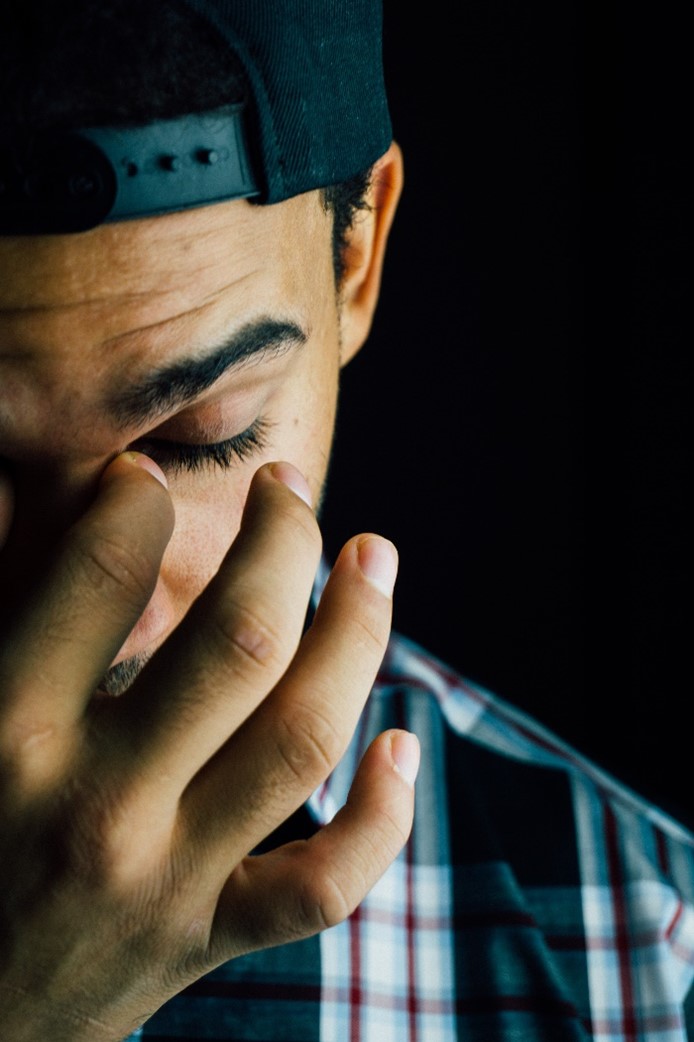Sleep Readiness:
Sleep FACT or CRAP
 Sleep problems in young adults (18-23yrs) can worsen suicidal thoughts.
Sleep problems in young adults (18-23yrs) can worsen suicidal thoughts.
FACT – A growing body of research indicates that sleep disturbances are associated with suicidal ideation and behaviors
“Sleep disturbances stand apart from other risk factors because they are visible as a warning sign, yet non-stigmatizing and highly treatable. This is why we believe they may represent an important treatment target in suicide prevention.” – Rebecca Berner, PHD
Read the article
Learn about ways to improve sleep
Anyone who is experiencing symptoms of suicide can receive help by calling the National Suicide Prevention Lifeline at 988, or by texting the Crisis Text Line (text HOME to 741741). All helplines offer free, confidential support 24 hours a day.
 Lack of sleep can make you fat
Lack of sleep can make you fat
FACT – Poor sleep is a major risk factor for weight gain and obesity.
People’s sleep requirements vary, but research has observed weight changes when people get fewer than 7 hours of quality sleep a night. Poor quality sleep has repeatedly been linked to a higher body mass index (BMI) and weight gain. Additionally, many sleep disorders, like sleep apnea, are worsened by weight gain. It’s a vicious cycle. Poor sleep can cause weight gain, weight gain can cause your sleep quality to decrease even further.
Learn More
Read the Medical Journal
Why is sleep important? Sleep improves….
- Judgment
- Problem Solving
- Situational Awareness
- Mood
- Resilience
- General Wellbeing
How much sleep do I need?
Most Soldiers need 7-9 hours of sleep every 24 hours to maximize health and sustain performance. The more sleep Soldiers get, the greater their mental acuity, faster response times, fewer errors, and fewer lapses in attention.
What is sleep debt?
When Soldiers don't get adequate rest (for example, 6 hours per night during the week), then a "sleep debt" starts to accrue. That "sleep debt" can continuously grow until you pay down that debt by getting adequate rest. So sleep in on off-duty days and weekends; pay down that debt!
How do you get more sleep?
- Establish a sleep schedule and routine
- Create a sleep-friendly environment
- Take 30-minute naps to accumulate 7-8 hours every 24 hours
- Stop caffeine consumption at least 6 hours before bed
- Limit alcohol consumption before bed
What is a sleep routine?
Sleep routines promote winding down - such as listening to soothing music, reading, and taking a warm bath or shower - 30-60 minutes before bedtime. These activities tend to facilitate the transition to sleep and maximize sleep duration.
Reduce Stress. Try a meditation or relaxation exercise before bed. Keep a notepad by your bed and write down those pesky thoughts that pop into your brain while you are laying there.
Things not to do before sleep...
Play video games, watch tv, chat/text/DM/ on your phone...these activities encourage the brain to stay awake and delay sleep onset.
Nicotine...Some people smoke before sleep to relax or wind down but nicotine stimulates the brain and body, and it will increase your heart rate and alertness. (Resources on Quitting Tobacco)
How do you create a sleep-friendly environment?
- Quiet
- Dark
- Comfortable Ambient Temperature (67F - 72F)
Some individuals believe that they sleep better with music or a television on, that they can sleep anywhere, and that ambient noise does not bother them. Research clearly shows that this is not the case. Soldiers do not get good sleep on a cot in the tactical operations center. Although sleepers are not aware of it, environmental sounds cause brief arousals—a momentary speeding of the brain’s electroencephalograph (known as EEG) activity during sleep—that effectively disrupt sleep continuity and reduce the restorative value of that sleep. Likewise, bright lights and excessively hot or cold environments can disrupt sleep continuity and reduce the restorative value of sleep.
Try a sleep mask, ambient noise machine, noise-dampening earplugs, and blackout curtains.